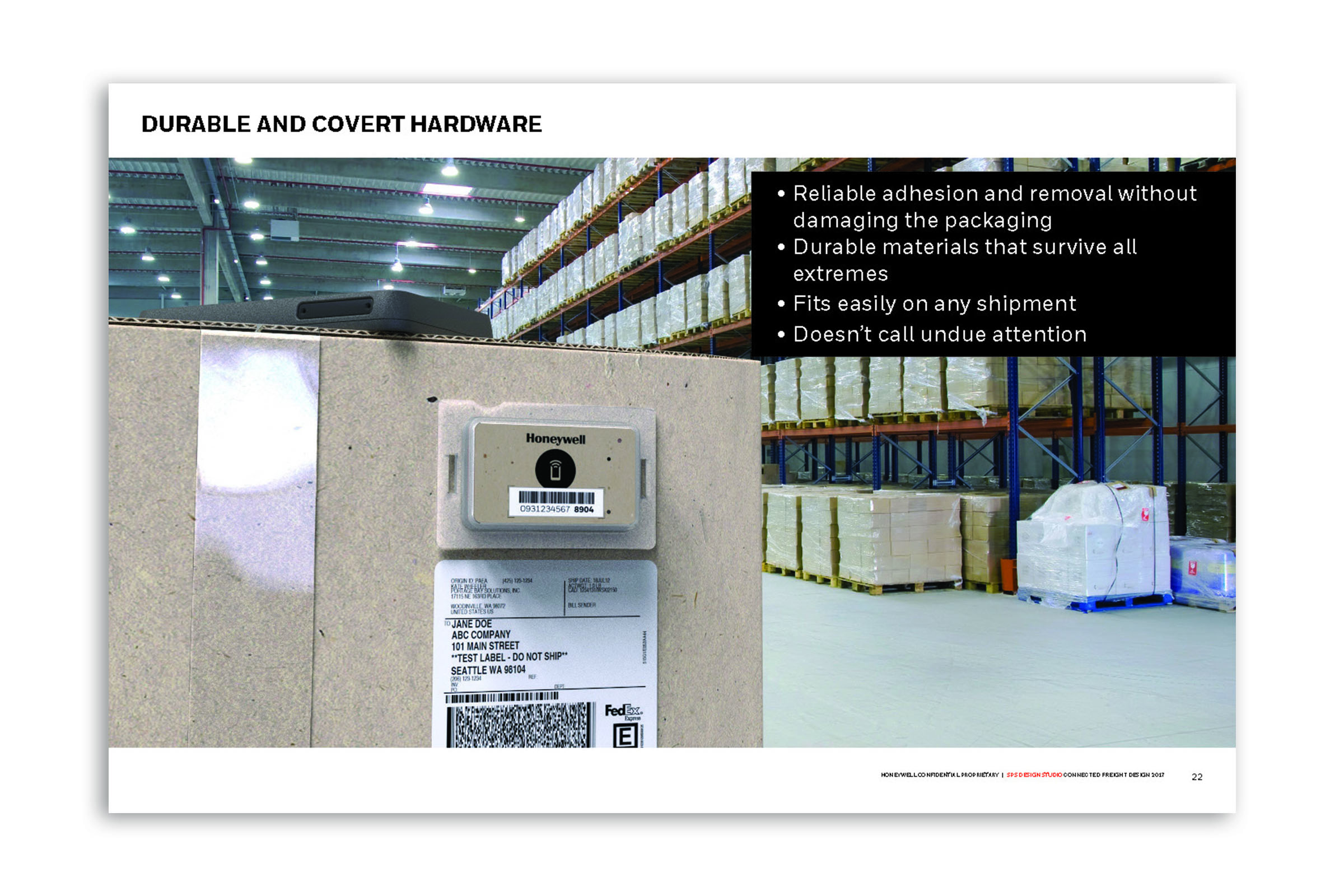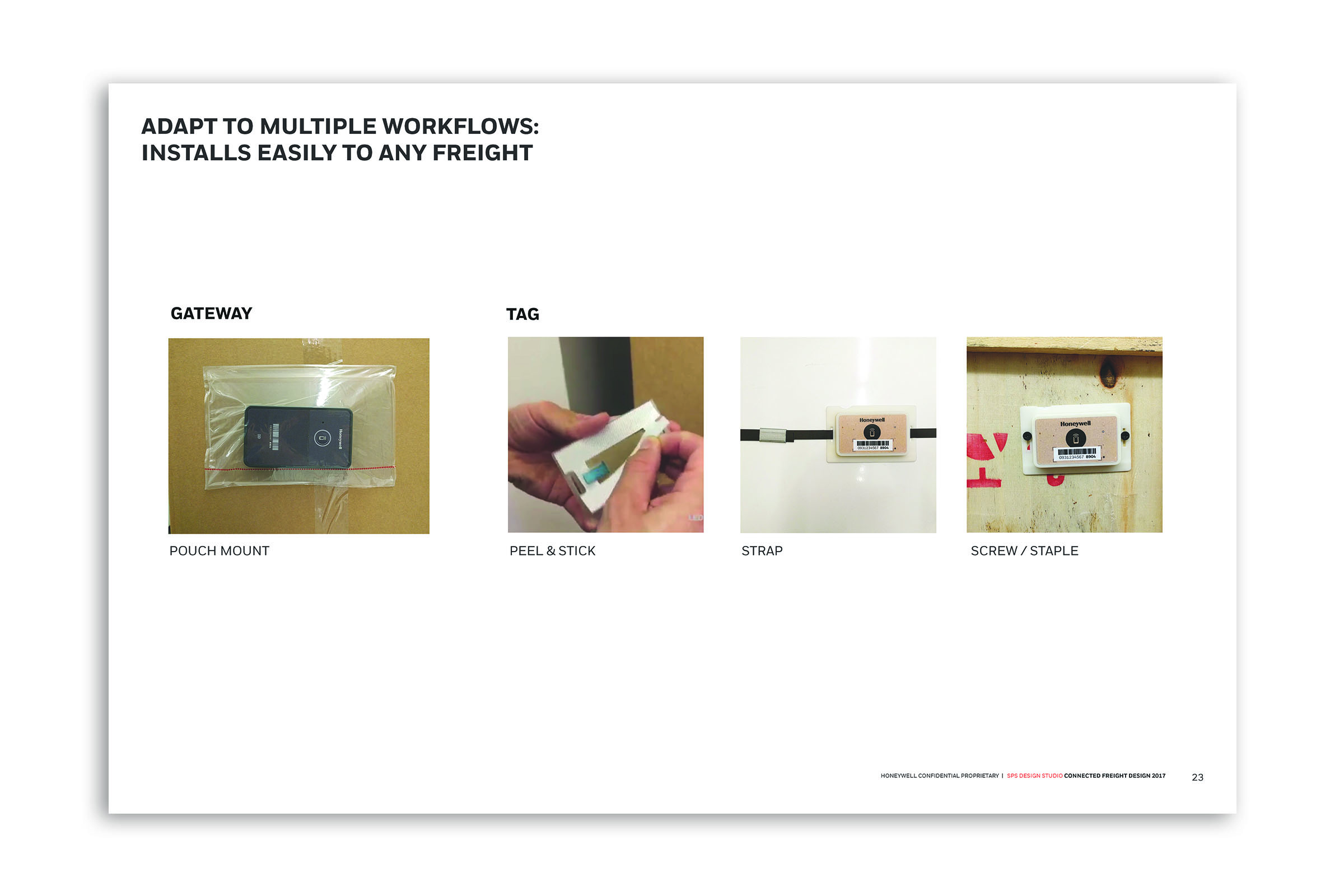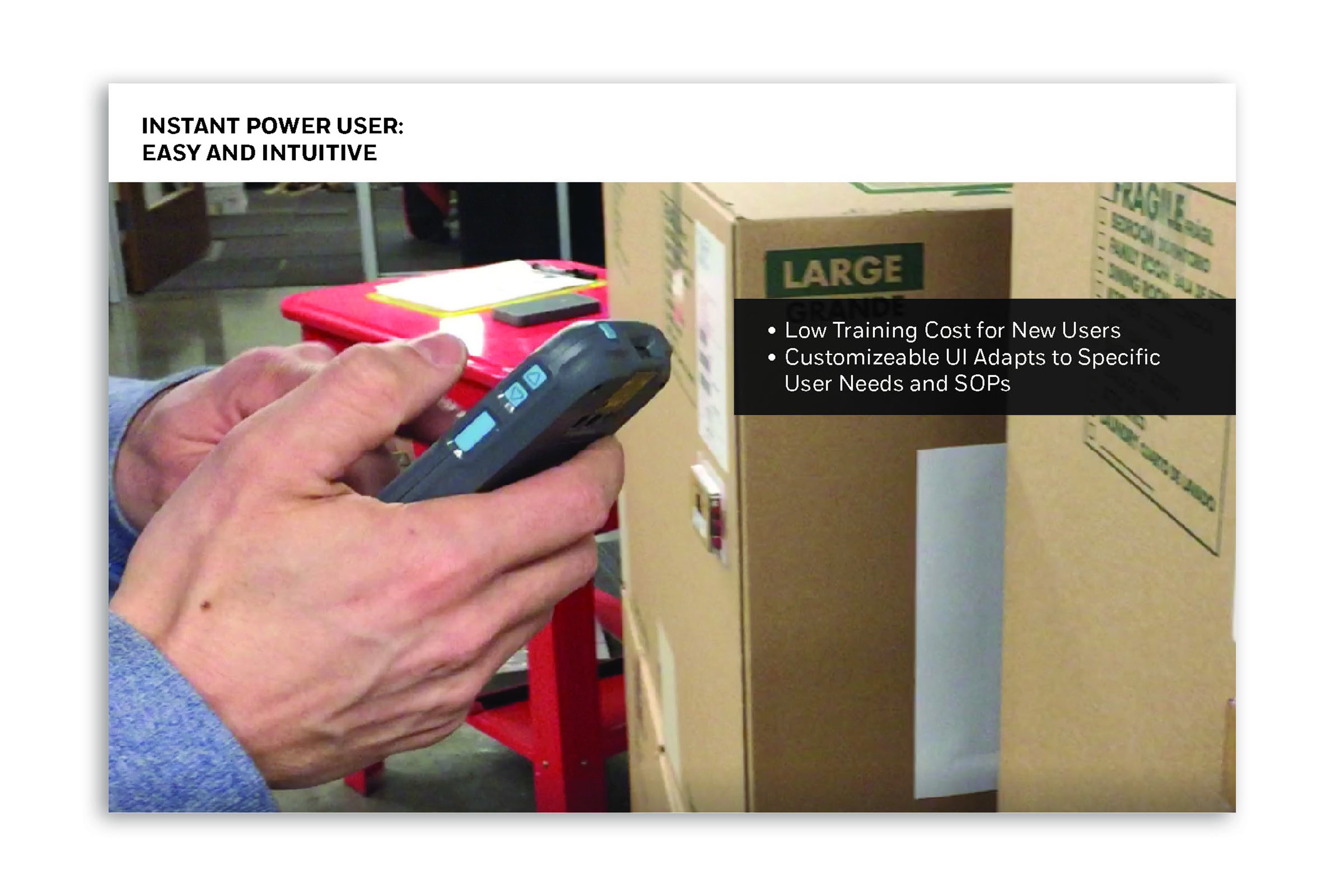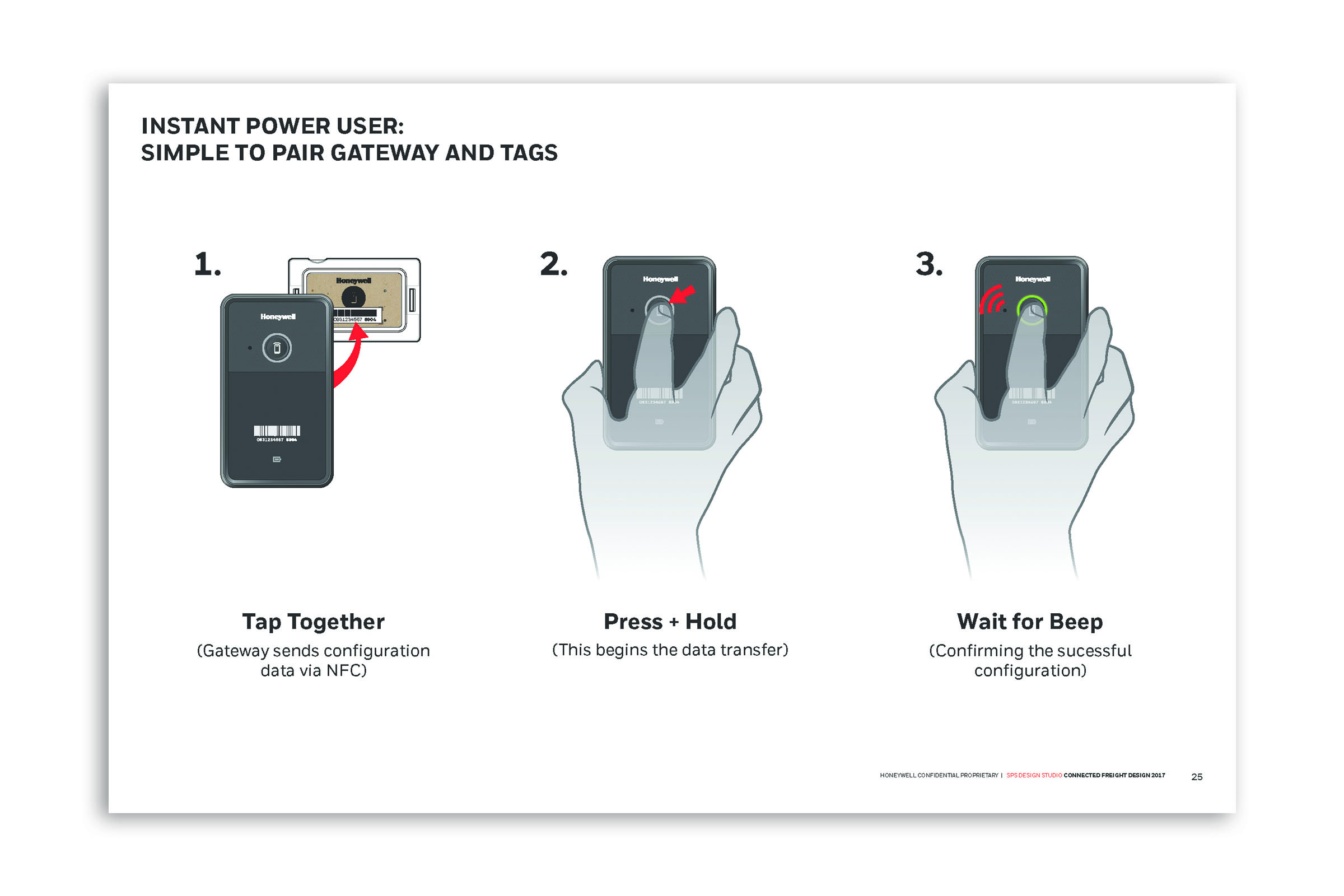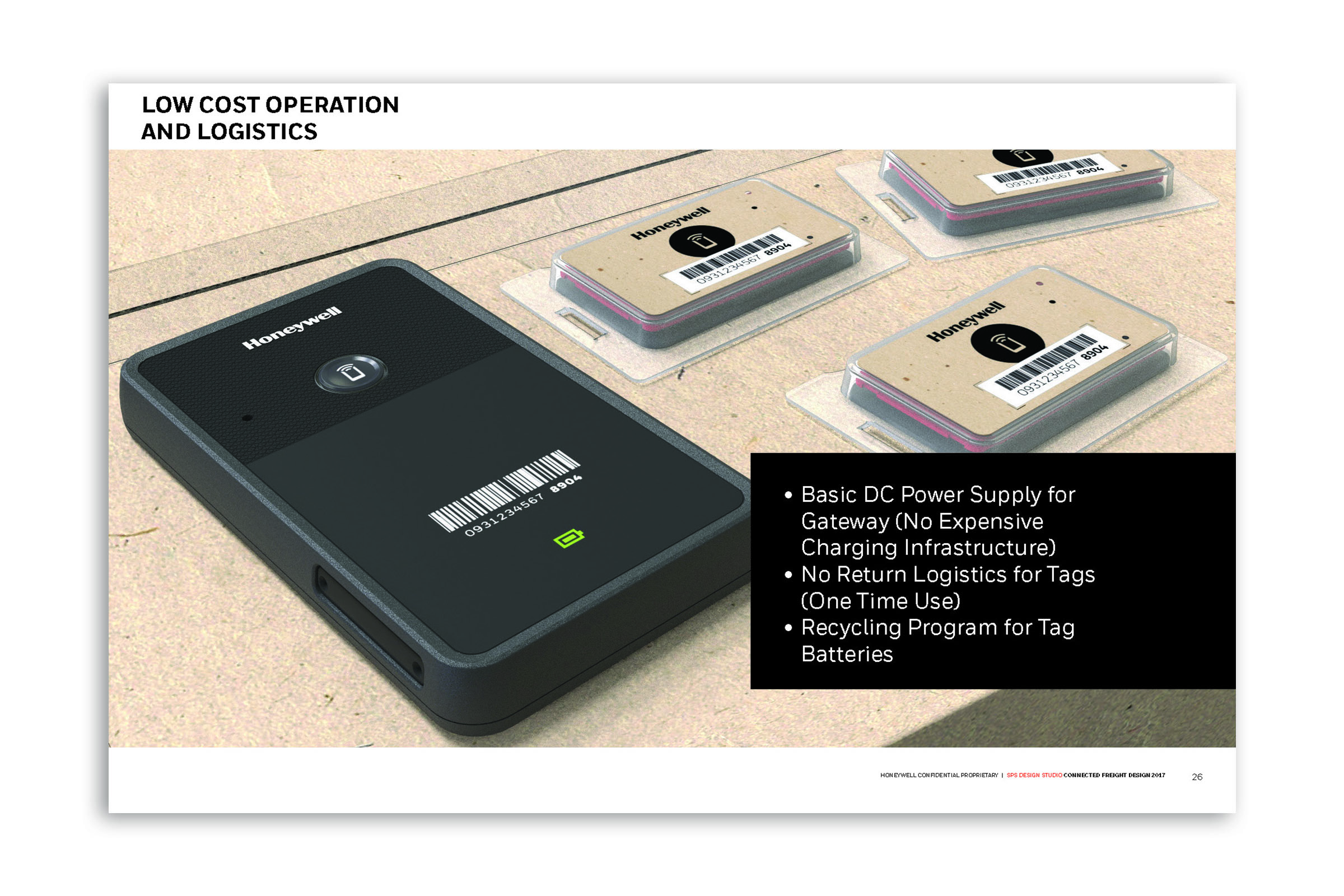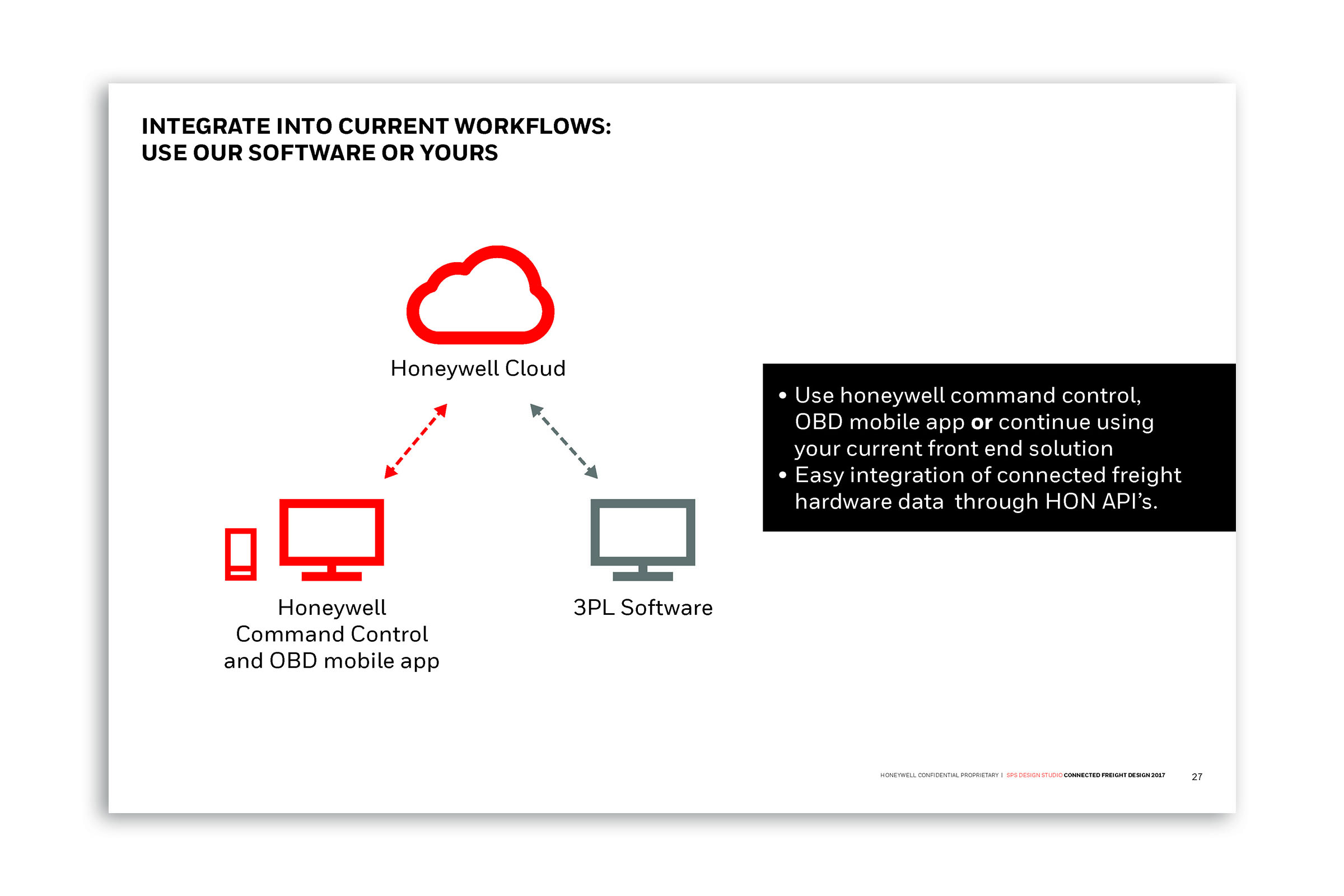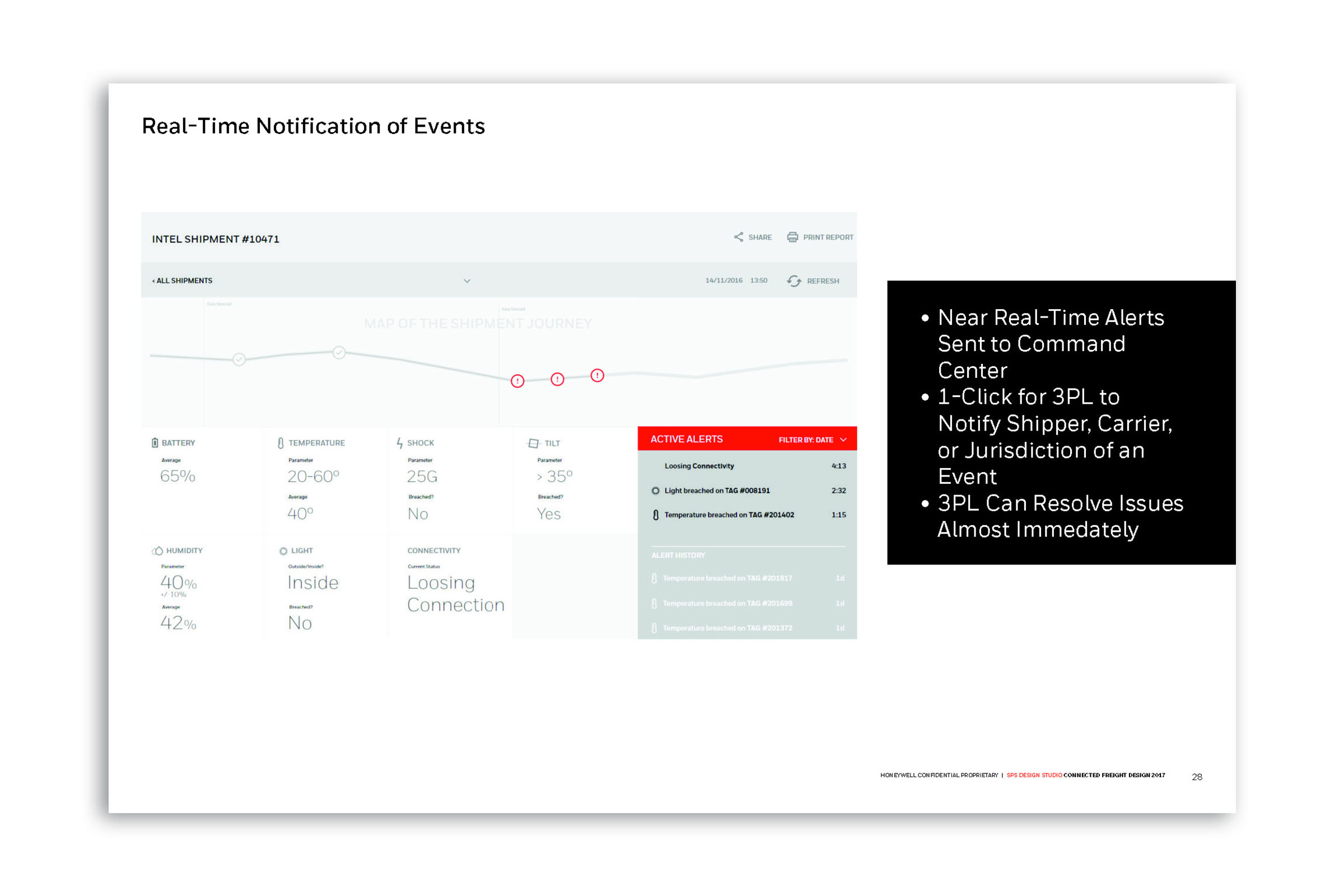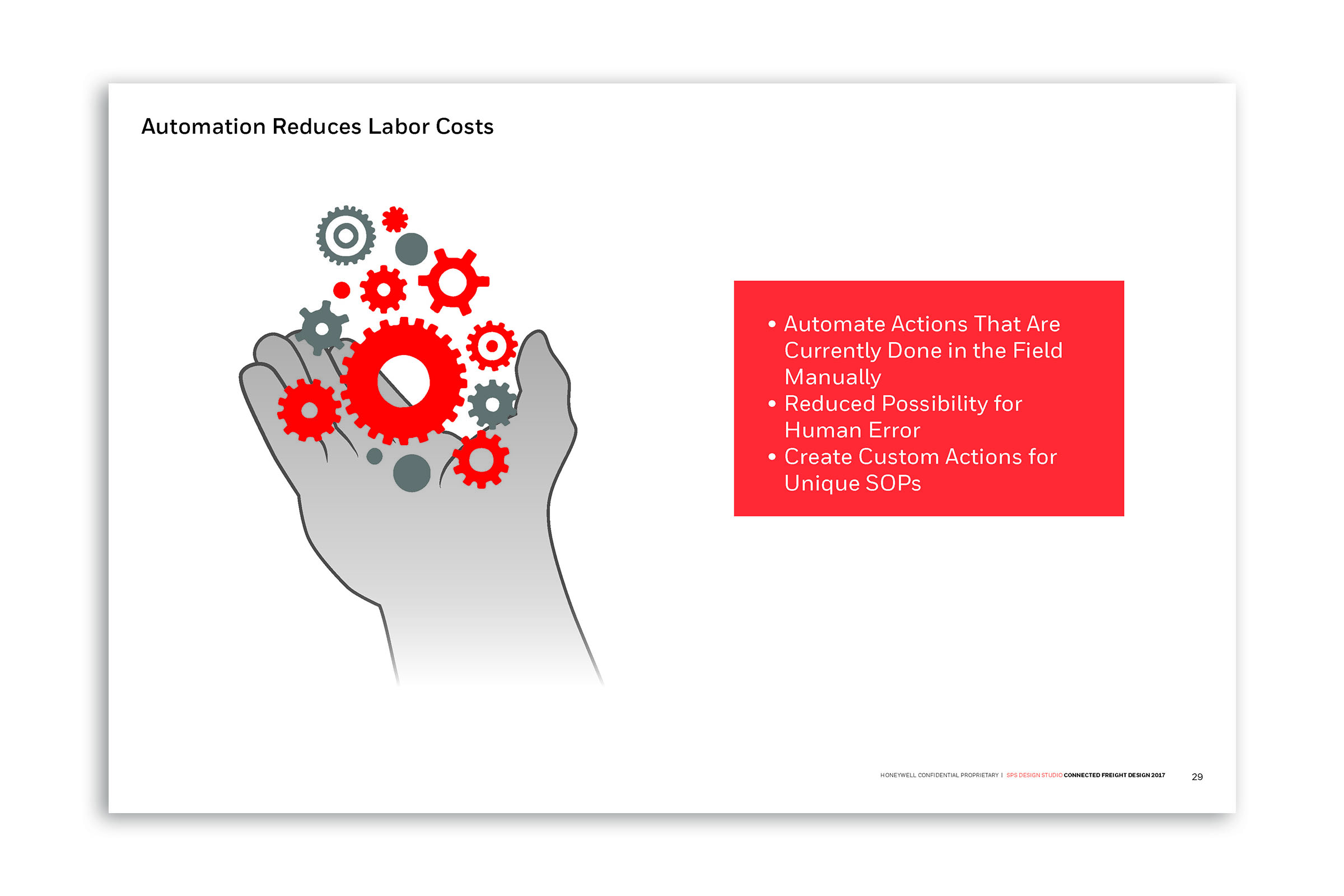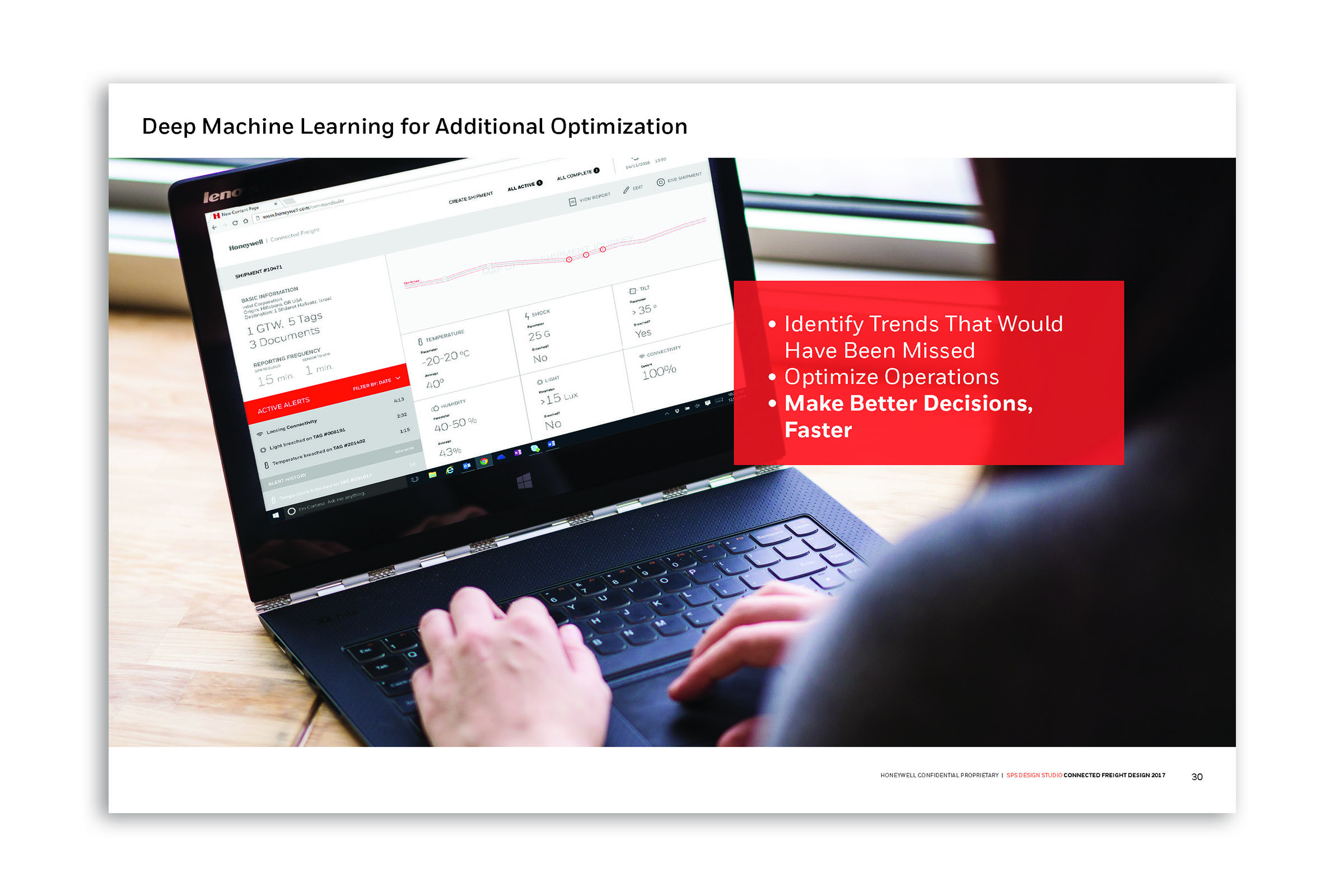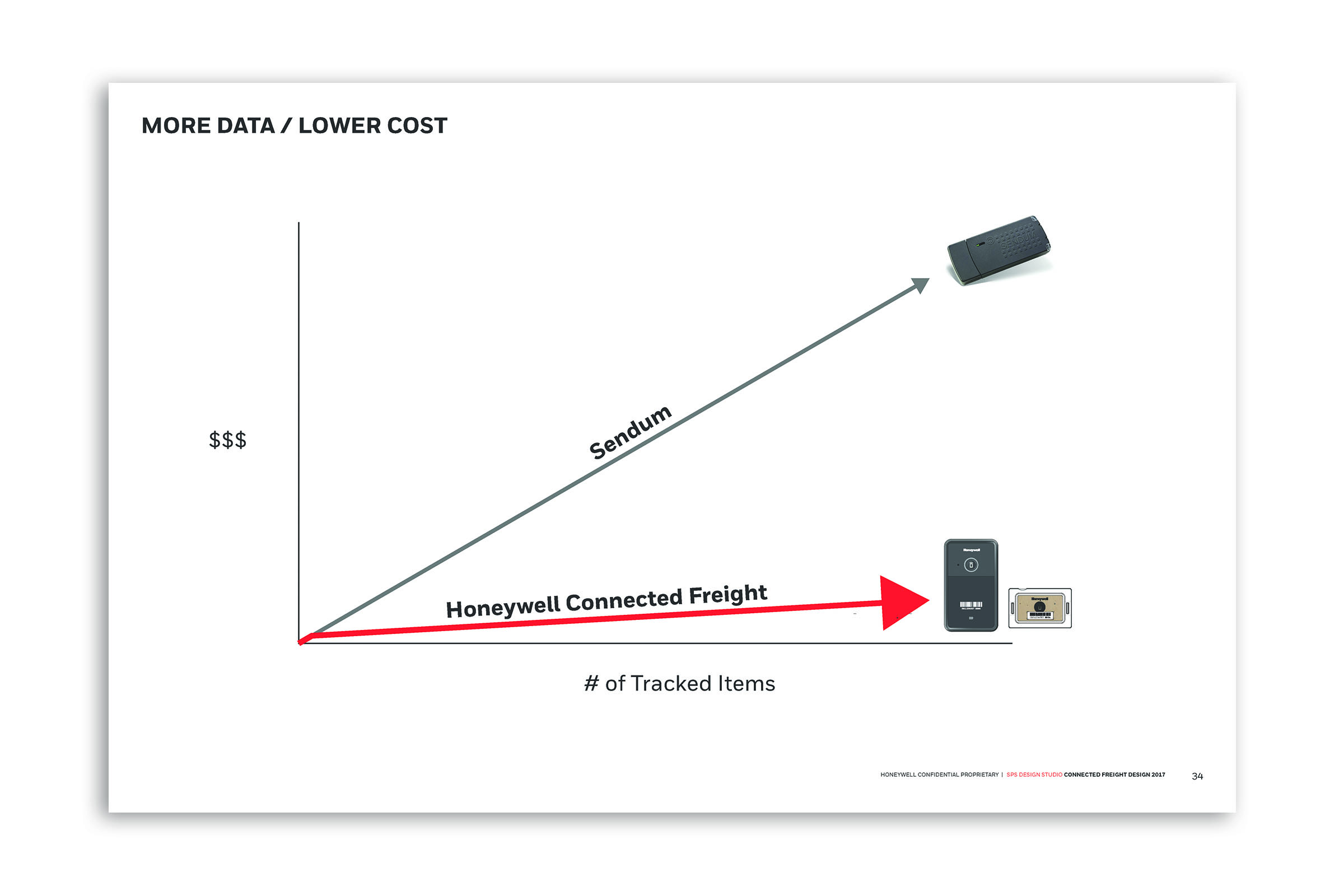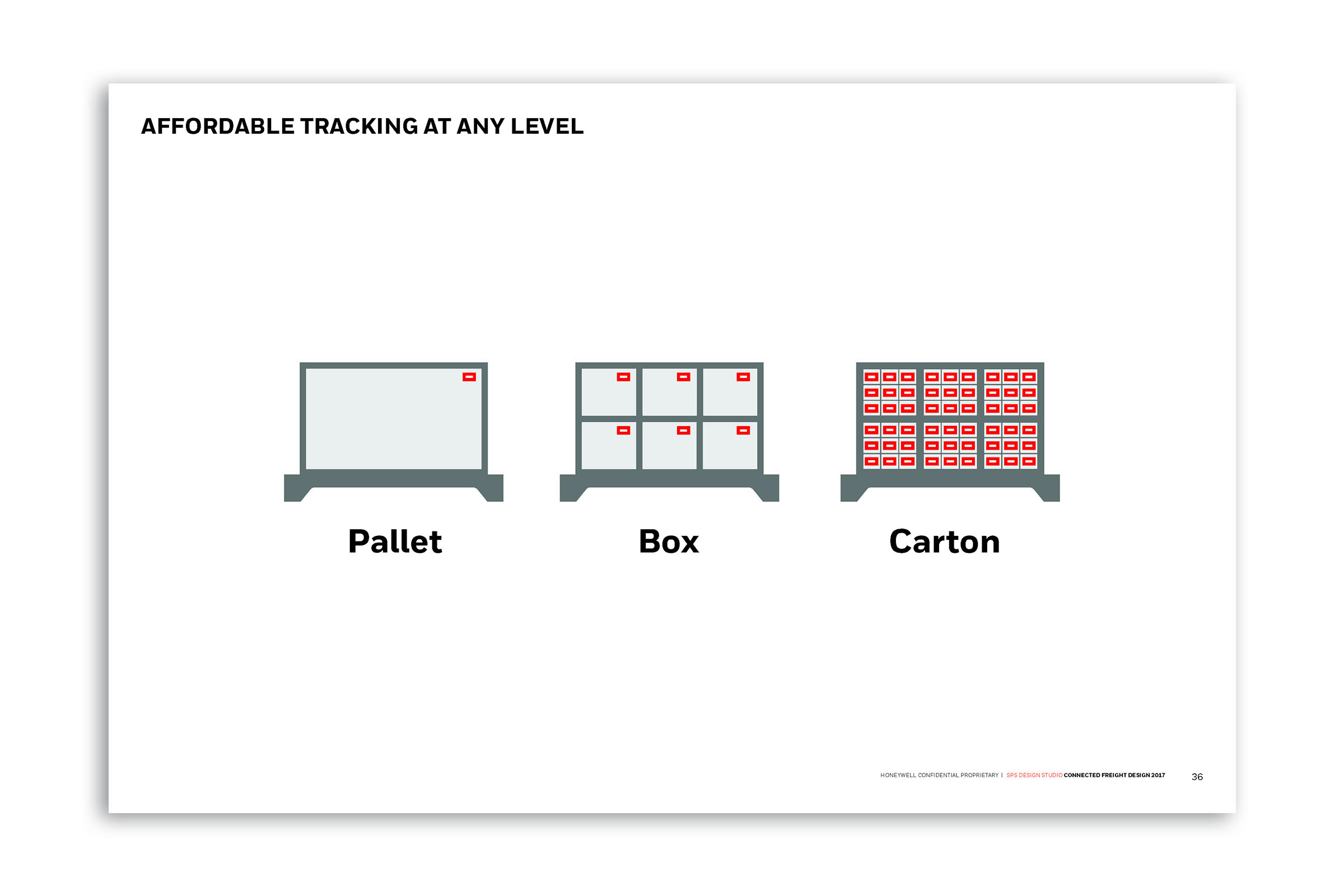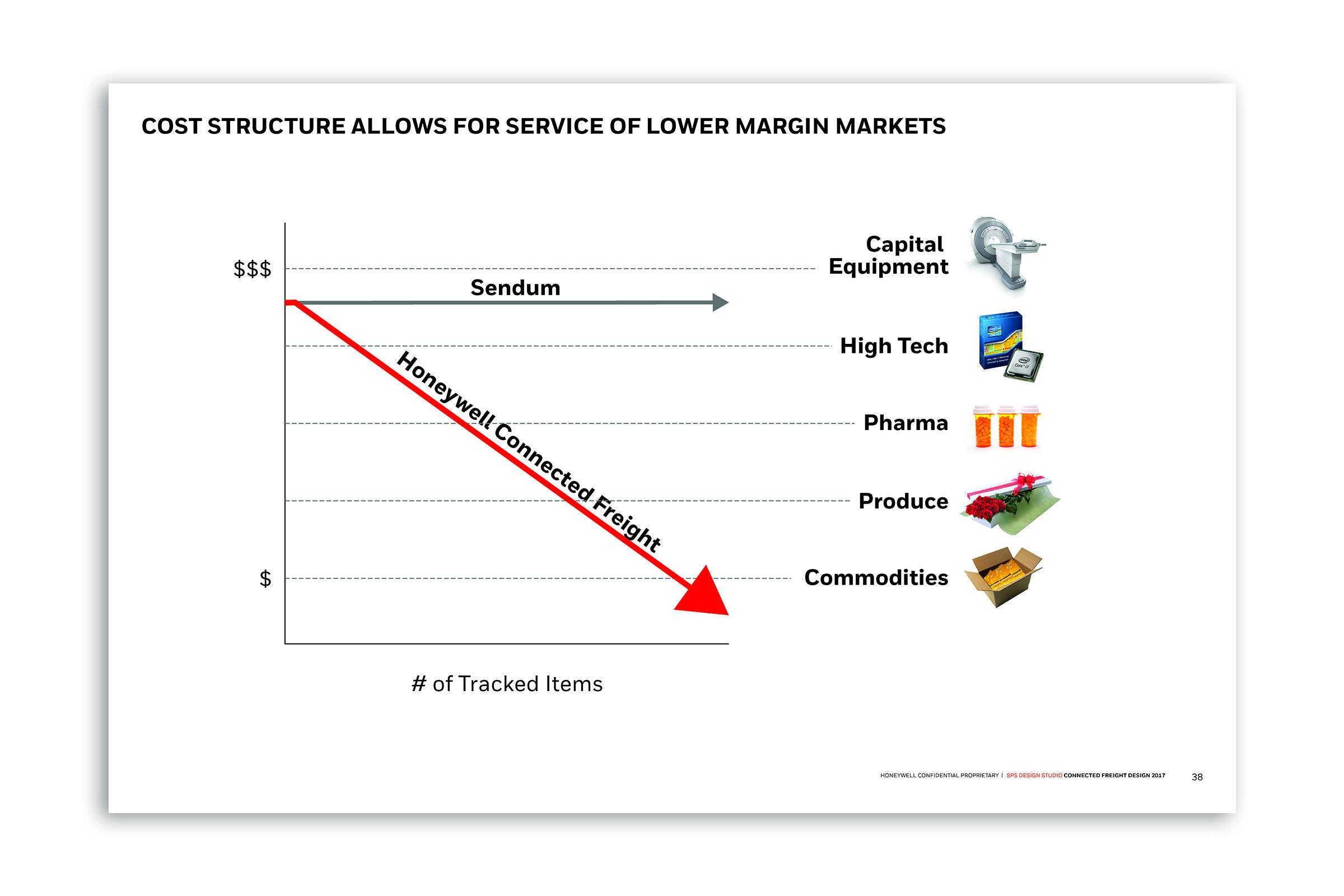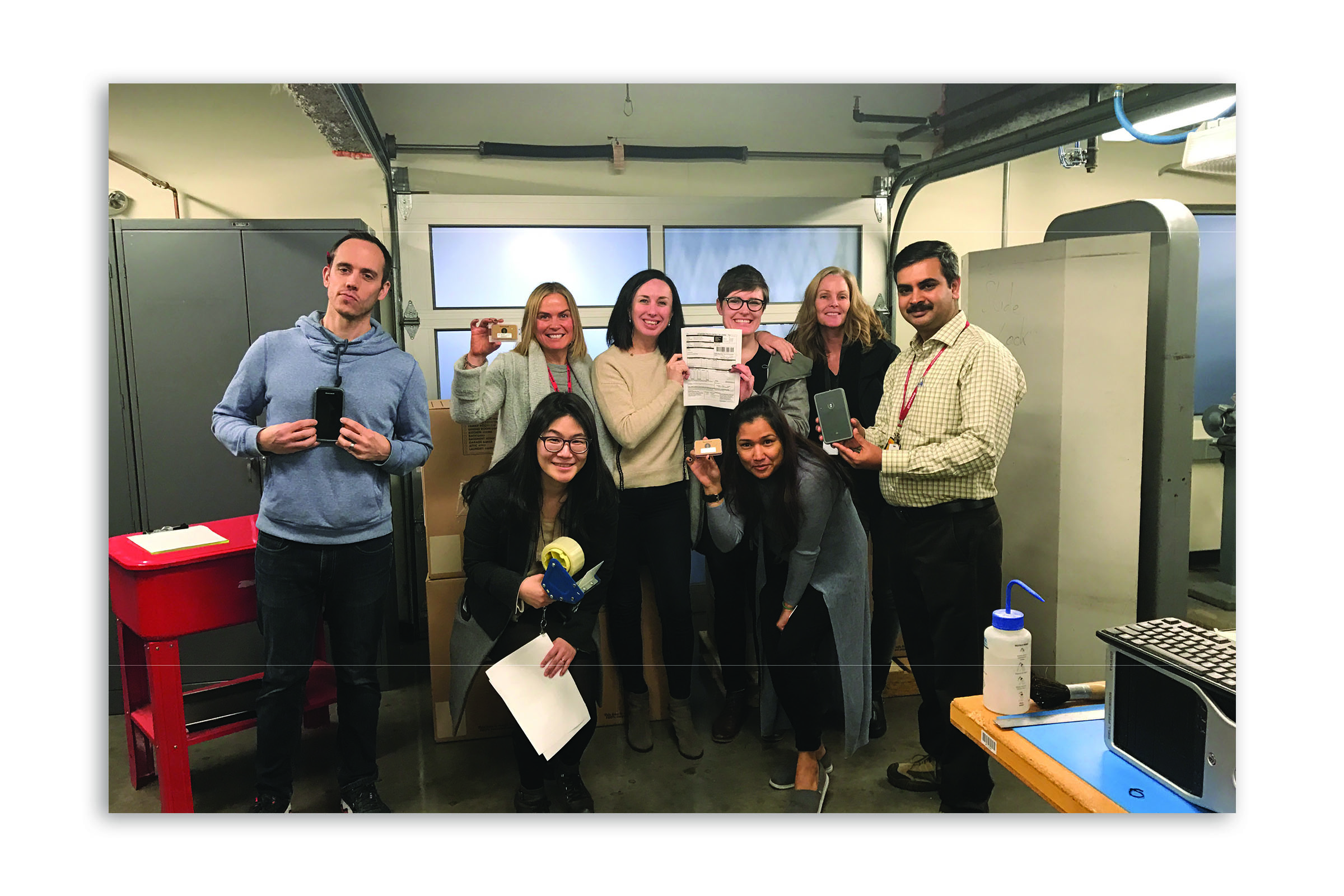Honeywell Connected Freight
Honeywell and Intel partnered to develop Connected Freight™- an IoT real-time freight tracking system. The goal for this project was to produce a flexible system that would allow logistics providers to see real-time telemetric data (shock, temperature, tilt, etc) for any shipment, anywhere in the world. Connected Freight is one of the major breakthrough initiatives for Honeywell SPS.
Honeywell Connected Freight Sensor Tag
My team (SPS Design) was brought in to ensure best-in-class user experience, as well as facilitate co-creation between multiple partners including Intel and three 3rd-party logistics providers (3PLs). I was primarily responsible for form factor and installation method, but the combined UX team (Intel & Honeywell) worked collaboratively on all aspects of the offering including hardware and software.
State of the Market
Intel approached Honeywell to help develop a product that could improve their visibility to high-value freight in transit. With downtime at their fab costing billions per day in lost revenue, ensuring everything arrives on time (and in working order) is a VERY valuable problem to solve. At the time, tracking solutions available on the market were expensive to deploy or incapable of delivering real-time information.
When freight is damaged or stolen any lag in awareness impedes their ability to take corrective action. Time is money!
Honeywell, a major player in the Connected Warehouse and Supply Chain market, saw an opportunity not only to build a solution for Intel but for the logistics market as a whole. With Intel providing the silicon the venture would be beneficial for both parties. To ensure the offering would be viable, Honeywell also partnered with several 3PL's (third-party logistics providers) to provide the requirements and field test the technology.
Unique SyStem Architecture
The Connected Freight system consists of low-cost ‘tags’ which are affixed to the item to be tracked and a ‘gateway’ device that sends the data to the cloud. This unique system architecture dramatically lowers the cost of instrumenting cargo over current one-piece solutions; allowing affordable tracking at the pallet, box, or even carton level.
Honeywell Connected Freight Hardware Offering
Tags data is collected by the gateway and communicated to the cloud.
Design Process
At Honeywell SPS Design, we work using an 'outcome driven' design and innovation methodology. We start by gaining a deep understanding of our users through research, distilling down their needs into actionable 'experience outcomes', co-creating concepts with our partners, and then iteratively refining those concepts through end-user evaluation.
Research
To better understand the contexts, people, and protocols involved in 3rd party logistics, our design team visited 3PL sites across Europe and the US. Our focus was to understand users from our three target markets; capital equipment, high value (technology) and cold-chaining (pharma). Careful documentation of the ‘End-to-End Box Journey’ allowed our design team to deeply understand all phases of a shipment and develop a solution which seamlessly integrates into customers’ unique SOPs.
Warehouses are dirty, industrial spaces with non-technical people doing most of the work. The offering needed to be simple and durable; not requiring much training, troubleshooting, or reliance on other systems.
'Return logistics' is a major cost-adder to real-time tracking solutions. Getting hardware to the right location, at the right time, and in working order would be a major driver of design focus.
Landing Page
Based on 'Jobs-to-be-done' theory made famous by Clayton Christensen, Outcome Driven Design (ODD) allows teams to look beyond the insights they collect during field research and really understand what 'jobs' users would 'hire' their products or services to accomplish. These distilled statements of user value are referred to as 'experience outcomes' and are a key piece of SPS Design's methodology. The landing page is a tool that collects those key outcomes in one page. By collecting them in once place, the team can easily communicate their vision and stay focused throughout development.
Connected Freight's 'Landing Page' with the 5 top Experience Outcomes.
Co-Creation
The Honeywell design team was brought in to ensure best-in-class user experience and facilitate co-creation between multiple partners including Intel and three 3rd-party logistics providers (3PLs). We worked collaboratively with multiple partners - internal ENG, Intel, 3PLs & our design manufacturer - to quickly create a solution that would serve our users needs and the partners' respective business objectives. Intensive workshops or 'design jams' are a key tool our team used to speed up cross-functional decision making.
4-Day On-Site Workshop in Seattle. That's me pointing at an early concept.
An Iterative Approach
To keep things moving fast, we used hand-made prototypes to define workflows, features, and form factor concurrently. Our team developed a regular cadence with a 3PL partner of making simple prototypes, bringing them in office, getting feedback and refining. With a feedback loop direct to our customer, our team was able to develop the entire hardware concept in under 3 months.
This is a small group of prototypes which show the progress toward a final offering. There were probably >100 hardware prototypes in all.
Video Prototyping
We relied heavily on a technique called ‘body-storming’ to act out potential workflows in real space. To share concepts we created short videos which illustrated how the offering would work at each stage in the journey. This technique proved extraordinarily effective in making sure all our stakeholders understood our proposals and could provide meaningful feedback. It also helped prevent the team from getting lost in the details to early in the design cycle.
The Solution
In logistics, the mantra is ‘it depends’. With no two customers having the same operating procedure, the Connected Freight solution is designed to be simple, adaptable, and require minimal training to operate. No matter the workflow, users will experience high confidence that their shipment will operate as intended from beginning to end. Both hardware and software exemplify the ruggedness and refinement customers have come to expect from the Honeywell brand. Not clunky or complex; it just works.











